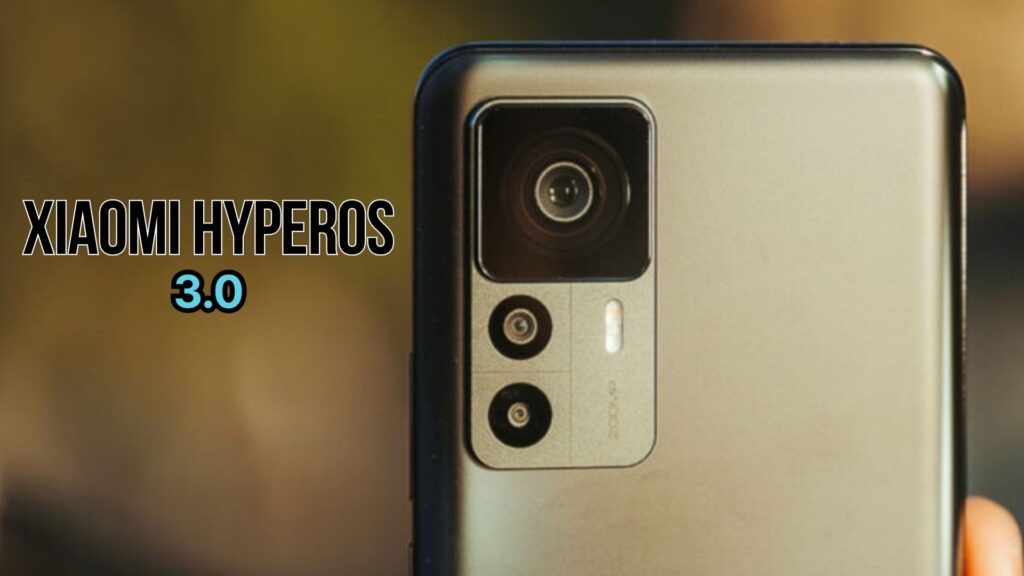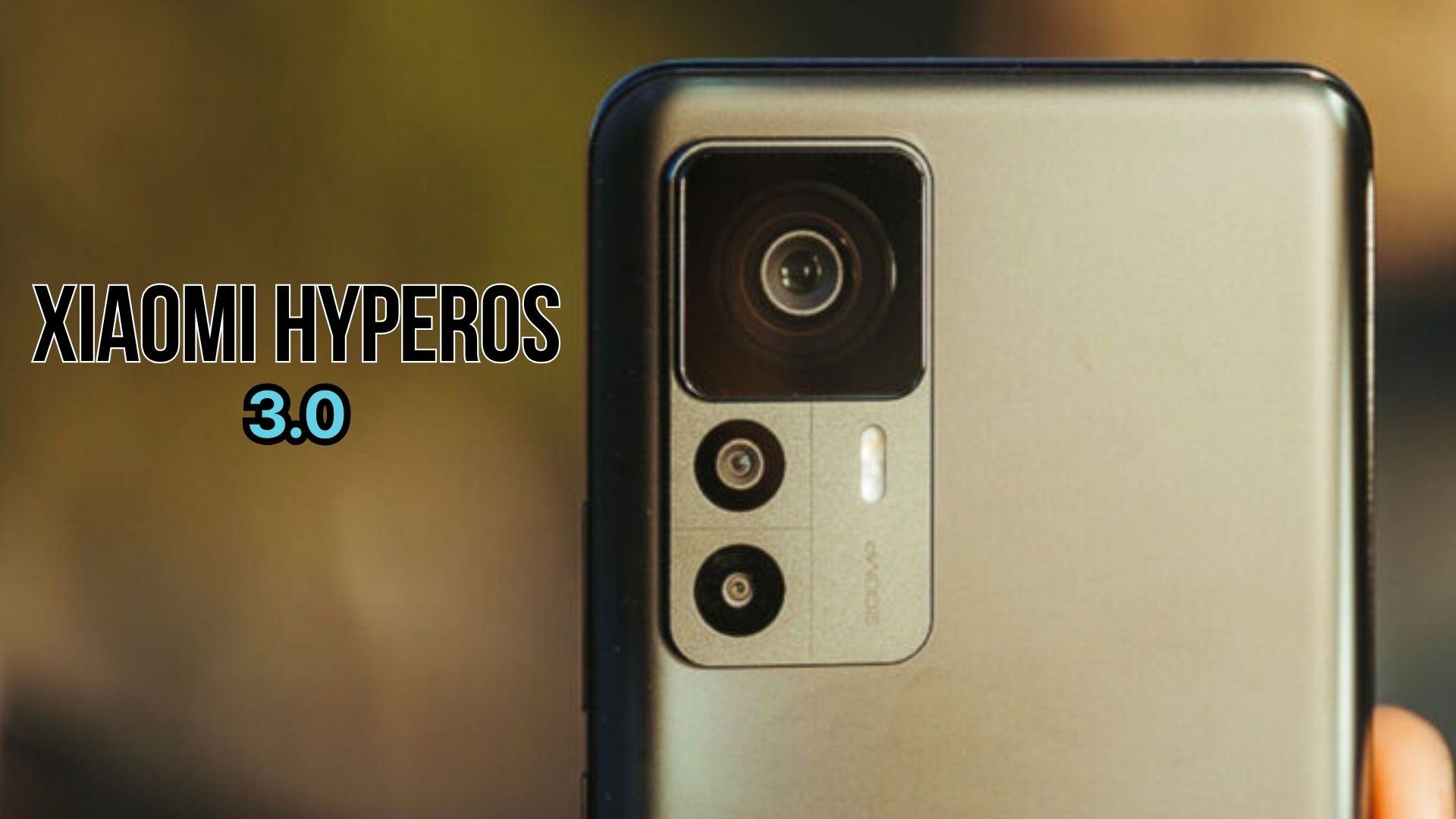Xiaomi has officially unveiled HyperOS 3.0, its latest custom operating system built on top of Android 16. The announcement primarily targeted the Chinese market, though the global rollout will follow later, possibly with slight variations in features and supported applications. With a redesigned interface, performance enhancements, and cross-platform connectivity, HyperOS 3.0 aims to deliver a smoother and smarter user experience.

Key Highlights of HyperOS 3.0
Refreshed Design and Visual Changes
HyperOS 3.0 introduces a subtle yet modern redesign. The new icons adopt a clean and minimal aesthetic, taking inspiration from iOS-like styling. Xiaomi has also revamped the status bar, making it more intuitive and organized. Another design change comes in the form of an adjustable home screen grid, offering better personalization options for users.
Introduction of Super Island
One of the most notable features of HyperOS 3.0 is Super Island, which closely mirrors Apple’s Dynamic Island on iOS. The feature integrates contextual, real-time information such as:
- App activities
- Appointments and bookings
- Media playback controls
- Set featured imageNotifications and alerts
Unlike Apple’s implementation, Xiaomi’s Super Island remains active in the notification panel, ensuring that information stays accessible at all times.
Short Summary Table
Feature/Update |
Details |
|---|---|
OS Version |
HyperOS 3.0 based on Android 16 |
Visual Changes |
New icons, revamped status bar, adjustable home grid |
Major Feature |
Super Island (Dynamic Island-like, integrated in notification panel) |
AI Improvements |
Smarter suggestions, automation, enhanced performance tuning |
Redesigned Apps |
New Dialer app (China-only) |
Cross-Platform Connectivity |
Seamless connection with iPhones, iPads, and Macs |
Rollout Start Date |
August 29, 2025 |
Stable Release |
Q4 2025 |
Eligible Devices |
Xiaomi 15 series, Redmi K80/K70 series, MIX Fold/Flip series, tablets |
Official Site |
AI and Performance Improvements
HyperOS 3.0 also enhances Xiaomi’s AI capabilities. The update includes machine learning optimizations for smarter suggestions, task automation, and real-time performance tuning. Additionally, Xiaomi has implemented under-the-hood tweaks to ensure smoother performance, better app responsiveness, and improved system stability.
Redesigned Dialer App
In China, Xiaomi showcased a redesigned dialer application as part of HyperOS 3.0. However, this change may remain exclusive to the Chinese market, since global and European ROMs generally rely on Google’s Phone app.
Cross-Platform Connectivity
Similar to Oppo and OnePlus ecosystems, Xiaomi has introduced seamless connectivity with iPhones, iPads, and Macs. This cross-device feature enables users to transfer data smoothly across platforms, improving workflow and device interoperability.
Rollout Schedule and Eligible Devices
Xiaomi has provided a detailed rollout timeline for HyperOS 3.0 Beta, covering a wide range of smartphones, tablets, and even smart TVs. The stable version is expected to arrive in the fourth quarter of 2025.
August 29, 2025
- Xiaomi 15 Ultra
- Xiaomi 15S Pro
- Xiaomi 15 Pro
- Xiaomi 15
- Redmi K80 Pro
- Redmi K80 Extreme Edition
- Xiaomi Pad 7S Pro 12.5
- Xiaomi Pad 7 Pro
- POCO F7 models
September 17, 2025
- Xiaomi MIX Flip 2
- Redmi K80
- Xiaomi Pad 7 Ultra
- Xiaomi Pad 7
- Redmi K Pad
- Xiaomi TV S Pro Mini LED 2025 series
- Xiaomi TB S Pro Mini LED series
September 30, 2025
- Xiaomi MIX Fold 4
- Xiaomi MIX Flip
- Xiaomi 14 Ultra / Titanium Special Edition
- Xiaomi 14 Pro / Titanium Special Edition
- Xiaomi 14
- Redmi K70 Pro
- Redmi K70 Extreme Edition
- Redmi K70
- Redmi K70E
- Xiaomi Pad 6S Pro 12.4
Frequently Asked Questions (FAQ)
1. What is HyperOS 3.0?
A. HyperOS 3.0 is Xiaomi’s custom user interface based on Android 16, featuring design changes, performance upgrades, and new features like Super Island.
2. What is Super Island in HyperOS 3.0?
A. Super Island is Xiaomi’s implementation similar to Apple’s Dynamic Island. It displays contextual information such as notifications, app activities, and media controls directly in the notification panel.
3. Will HyperOS 3.0 be available globally?
A. Yes, but some features may vary depending on the region. For instance, the dialer app changes are expected to remain exclusive to the Chinese ROM.
4. Which devices will get HyperOS 3.0 first?
A. The rollout starts with the Xiaomi 15 series, Redmi K80 Pro, POCO F7 models, and Xiaomi Pad 7 series from August 29, 2025.
5. When will the stable version release?
A. The stable build of HyperOS 3.0 is expected to release in Q4 2025.
6. Does HyperOS 3.0 support cross-platform connectivity?
A. Yes, HyperOS 3.0 allows seamless data transfer between Xiaomi devices and Apple devices such as iPhones, iPads, and Macs.
For More Information Click HERE







